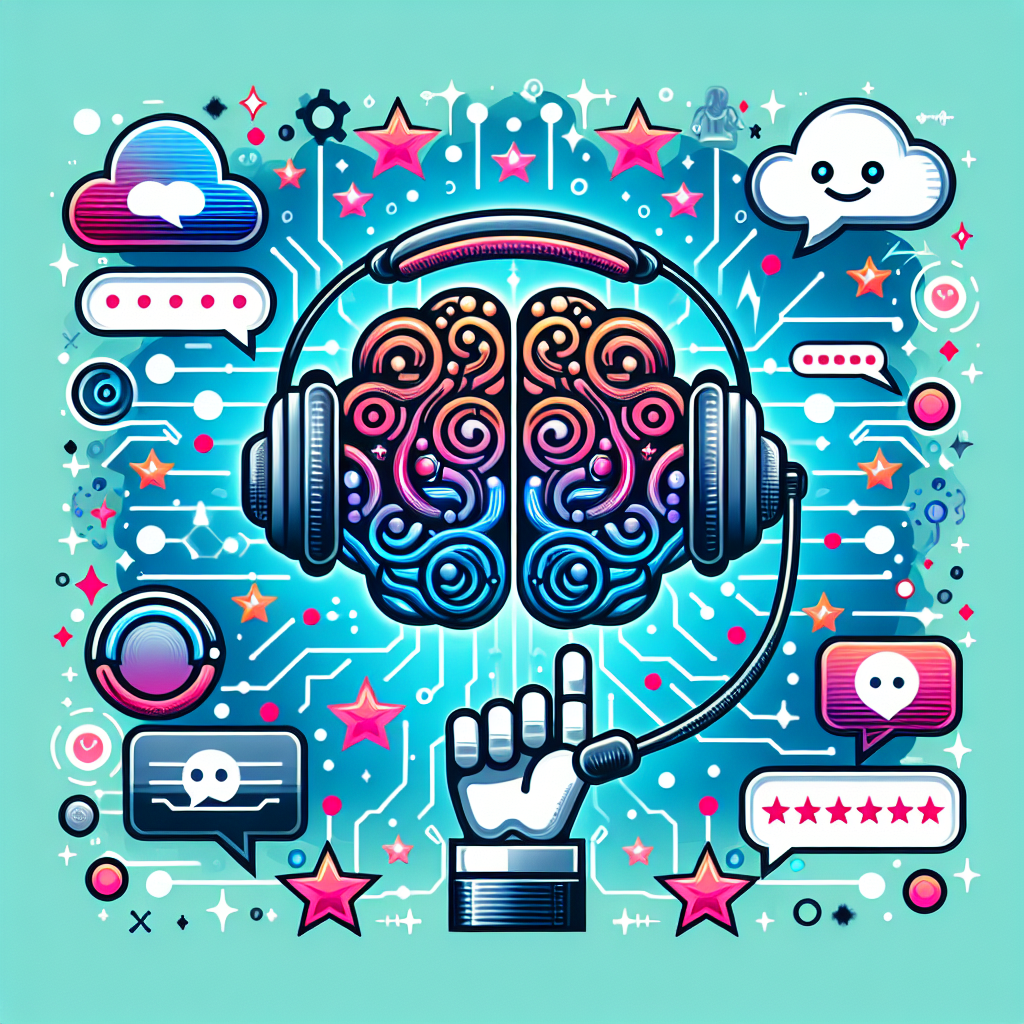Artificial Intelligence (AI) is revolutionizing the way businesses interact with customers, especially in the realm of customer service. By leveraging AI technology, companies can provide faster, more personalized, and efficient customer support. This has led to improved customer satisfaction levels and increased loyalty. In this article, we will explore how AI is transforming customer service and the various ways in which it is being implemented to enhance the overall customer experience.
AI-driven Chatbots
One of the most common applications of AI in customer service is through the use of chatbots. Chatbots are virtual assistants that can interact with customers in real-time, providing instant answers to their queries. These chatbots are powered by AI algorithms that enable them to understand natural language and respond in a human-like manner.
Chatbots can be integrated into websites, social media platforms, and messaging apps to provide round-the-clock customer support. They can answer frequently asked questions, troubleshoot common issues, and even escalate more complex queries to human agents when needed. By automating routine tasks, chatbots free up human agents to focus on more complex and high-value interactions, ultimately improving overall efficiency and productivity.
Personalized Customer Interactions
AI allows businesses to gather and analyze vast amounts of customer data to create personalized customer experiences. By leveraging AI-powered analytics tools, companies can track customer behavior, preferences, and past interactions to tailor their interactions accordingly. This level of personalization helps businesses understand their customers better and anticipate their needs, leading to more meaningful and relevant interactions.
For example, AI can be used to recommend products or services based on a customer’s browsing history or purchase behavior. It can also be used to send targeted promotional offers or personalized messages to customers at the right time and through the right channel. By delivering personalized experiences, businesses can increase customer engagement, loyalty, and ultimately, drive revenue growth.
Predictive Customer Service
AI is also being used to predict customer needs and proactively address potential issues before they arise. By analyzing historical data and trends, AI algorithms can identify patterns and make predictions about future customer behavior. This enables businesses to anticipate customer needs, offer proactive support, and prevent problems before they occur.
For example, AI can be used to predict when a customer is likely to churn based on their interactions and behavior. Businesses can then take preemptive actions, such as offering personalized discounts or incentives, to retain these customers. By leveraging predictive analytics, businesses can improve customer retention rates, reduce churn, and increase customer lifetime value.
Efficient Resource Allocation
AI can help businesses optimize their customer service operations by efficiently allocating resources based on demand. By analyzing incoming queries in real-time, AI algorithms can prioritize and route them to the most appropriate channel or agent. This ensures that customer queries are handled promptly and efficiently, leading to faster resolution times and improved customer satisfaction levels.
AI can also be used to automate repetitive tasks, such as data entry, routing calls, or scheduling appointments, freeing up human agents to focus on more complex and value-added activities. By automating routine tasks, businesses can reduce operational costs, improve efficiency, and scale their customer service operations more effectively.
Improved Customer Feedback and Insights
AI-powered analytics tools can help businesses gather and analyze customer feedback more effectively. By analyzing customer interactions, sentiment, and feedback, businesses can gain valuable insights into customer preferences, pain points, and areas for improvement. This data can be used to enhance products and services, optimize customer journeys, and drive continuous improvement in customer service.
AI can also be used to conduct sentiment analysis on social media and other online platforms to monitor brand reputation and customer sentiment. By tracking mentions, comments, and reviews, businesses can identify trends, address customer concerns, and respond to feedback in a timely manner. This proactive approach to managing customer feedback can help businesses build trust, loyalty, and positive brand perception.
Common FAQs about AI in Customer Service
Q: What are the benefits of using AI in customer service?
A: AI in customer service offers several benefits, including faster response times, personalized interactions, proactive support, efficient resource allocation, and improved customer feedback and insights.
Q: How does AI-powered chatbots work?
A: AI-powered chatbots use natural language processing algorithms to understand customer queries and respond in a human-like manner. They can be integrated into websites, social media platforms, and messaging apps to provide instant customer support.
Q: Can AI predict customer needs?
A: Yes, AI can predict customer needs by analyzing historical data and trends to identify patterns and make predictions about future customer behavior. This enables businesses to anticipate customer needs and offer proactive support.
Q: How can businesses use AI to improve customer feedback?
A: AI-powered analytics tools can help businesses gather and analyze customer feedback more effectively. By analyzing customer interactions, sentiment, and feedback, businesses can gain valuable insights into customer preferences, pain points, and areas for improvement.
Q: What are some common applications of AI in customer service?
A: Some common applications of AI in customer service include chatbots, personalized customer interactions, predictive customer service, efficient resource allocation, and improved customer feedback and insights.
In conclusion, AI is transforming the way businesses interact with customers and revolutionizing the customer service landscape. By leveraging AI technology, companies can provide faster, more personalized, and efficient customer support, leading to improved customer satisfaction levels and increased loyalty. With the continued advancements in AI technology, we can expect to see even more innovative applications of AI in customer service in the future.

